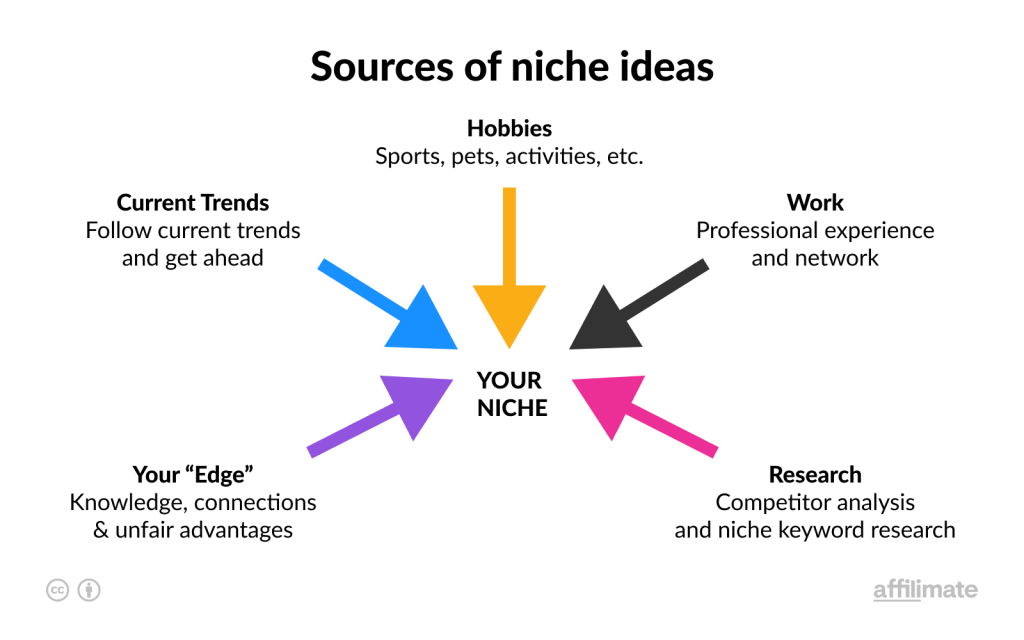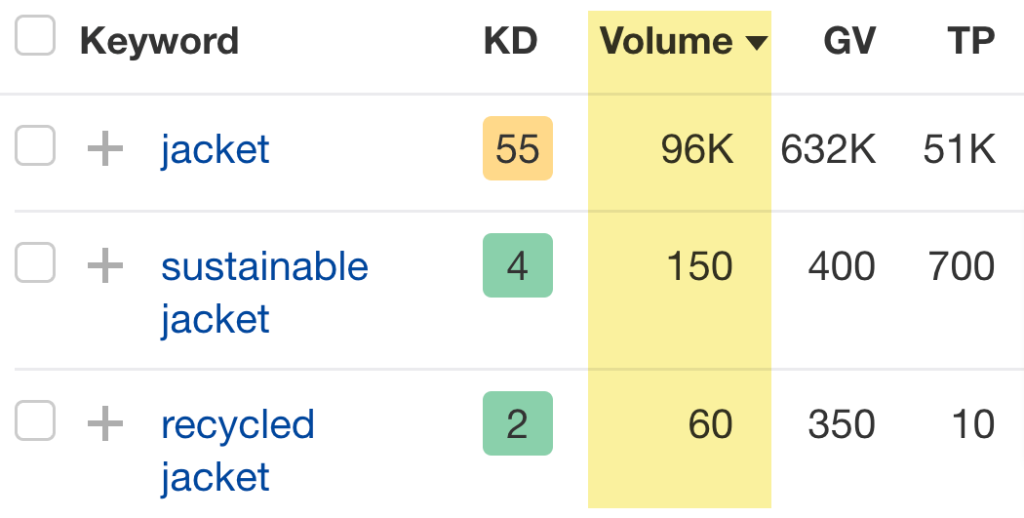If you’re looking to boost your online presence and drive more traffic to your niche site, then you’ll want to pay close attention to one key aspect: keywords. Researching the right keywords can make all the difference in attracting your target audience and climbing up the search engine rankings. In this article, we’ll show you exactly how to research keywords for your niche site, giving you the tools and techniques you need to optimize your content and attract the right audience. Say goodbye to shooting in the dark and hello to strategic keyword research. Let’s get started!

This image is property of nichesiteproject.com.
Understand Your Niche
Identify your niche
When it comes to researching keywords for your niche site, the first step is to identify your niche. A niche is a specific area or topic that you want to focus on, and it’s important to choose one that you are passionate about and have expertise in. By selecting a niche that you are knowledgeable about, it will be easier for you to create valuable content for your target audience.
Research your target audience
Once you have identified your niche, the next step is to research your target audience. Understanding who your audience is and what they are looking for is crucial for keyword research. Take the time to learn about their demographics, interests, needs, and pain points. This information will help you create content that’s relevant and valuable to them.
Analyze your competitors
Another important aspect of keyword research is analyzing your competitors. Identify your top competitors within your niche and take a closer look at their websites and content. Look for the keywords they are targeting and the type of content they are creating. This will give you useful insights into what’s already working in your niche and help you find opportunities to differentiate yourself.
Brainstorming
Generate a list of seed keywords
To begin your keyword research, start by generating a list of seed keywords. Seed keywords are the foundation of your research and represent the core topics of your niche. Think about the main topics and concepts that are relevant to your niche and jot them down. These seed keywords will serve as a starting point to expand your research further.
Utilize keyword research tools
To gather more keyword ideas and data, it’s essential to utilize keyword research tools. These tools can help you discover new keywords, analyze search volumes, and assess competition. Some popular keyword research tools include Google Keyword Planner, SEMrush, and Ahrefs. Experiment with different tools and find the ones that work best for you.
Consider long-tail keywords
In addition to seed keywords, it’s important to consider long-tail keywords during your brainstorming process. Long-tail keywords are longer, more specific phrases that typically have lower search volumes but higher conversion rates. They can help you target a more specific audience and capture highly relevant traffic. Think about the questions your audience might ask or specific problems they are trying to solve within your niche.

This image is property of assets.affilimate.com.
Keyword Volume
Analyze search volume
Determining the search volume of keywords is an essential step in keyword research. Search volume refers to the number of times a specific keyword is searched for within a given time frame. By analyzing search volume, you can identify keywords that have a high demand and relevance to your niche. Focus on keywords with a significant search volume to ensure that there is enough potential traffic for your content.
Assess keyword competition
While high search volume is desirable, it’s also important to assess the keyword competition. Keyword competition refers to the number of websites already targeting a particular keyword. The higher the competition, the more challenging it will be for your content to rank well in search engine results. Look for keywords with a balance of high search volume and manageable competition to increase your chances of ranking higher.
Relevance
Evaluate keyword relevance to your niche
When conducting keyword research, it’s crucial to evaluate the relevance of each keyword to your niche. Consider whether the keyword accurately represents the content you plan to create and whether it aligns with the overall focus of your niche site. Relevance is key to attracting the right audience and ensuring that your content meets their expectations.
Consider user intent
In addition to relevance, consider user intent when selecting keywords for your niche site. User intent refers to the reason behind an individual’s search query. Are they looking for information, trying to make a purchase, or seeking a solution to a problem? Understanding user intent will help you tailor your content to meet their needs and provide valuable information or solutions.

This image is property of nichesiteproject.com.
Keyword Research Tools
Google Keyword Planner
Google Keyword Planner is a free keyword research tool provided by Google. It allows you to discover new keyword ideas, analyze search volumes, and assess competition. With Google Keyword Planner, you can gather insights from the world’s largest search engine and make informed decisions on which keywords to target.
SEMrush
SEMrush is a comprehensive keyword research tool that provides in-depth data and analysis. It offers features to assist in keyword research, competitor analysis, and tracking keyword rankings. By using SEMrush, you can gain valuable insights into your niche, competitors, and find opportunities for growth.
Ahrefs
Ahrefs is another powerful keyword research tool that offers a wide range of features. It allows you to explore keywords, analyze backlinks, track rankings, and much more. Ahrefs is particularly useful for competitor analysis, allowing you to uncover the keywords your competitors are targeting and learn from their strategies.
Competitor Analysis
Identify top competitors
Competitor analysis is an important aspect of keyword research. By identifying your top competitors within your niche, you can gain valuable insights into their strategies and learn from their successes and failures. Look for competitors who are ranking well for relevant keywords and analyze their websites and content to see what sets them apart.
Analyze competitor keywords
Once you have identified your competitors, take the time to analyze the keywords they are targeting. This can help you uncover valuable keyword opportunities that you may have missed during your initial research. Look for keywords that are driving traffic to your competitors’ websites and assess their relevance and search volume to determine if they are worth targeting.

This image is property of i.ytimg.com.
Long-Tail Keywords
What are long-tail keywords?
Long-tail keywords are longer, more specific phrases that typically have lower search volumes compared to broader keywords. They are often more targeted and allow you to reach a more specific audience. For example, instead of targeting the keyword “shoes,” a long-tail keyword could be “comfortable running shoes for women.” Long-tail keywords can be highly valuable in driving targeted traffic to your niche site.
Benefits of targeting long-tail keywords
Targeting long-tail keywords can offer several benefits. Firstly, they often have less competition compared to broader keywords, making it easier to rank higher in search results. Secondly, long-tail keywords tend to have higher conversion rates because they attract users who are searching for specific information or solutions. Finally, by targeting long-tail keywords, you can establish yourself as an authority within your niche and build a loyal audience.
Keyword Difficulty
Assess keyword difficulty
Keyword difficulty refers to the level of competition you will face when trying to rank for a particular keyword. It takes into account factors such as the number of websites already targeting the keyword and the quality of their content. Assessing keyword difficulty is crucial to ensure that you choose keywords with manageable competition. Consider using keyword research tools that provide a keyword difficulty score to help you make informed decisions.
Choose keywords with manageable competition
When selecting keywords for your niche site, it’s essential to choose ones with manageable competition. While it may be tempting to target high-volume keywords, if the competition is extremely tough, it can be challenging to rank well. By choosing keywords with moderate competition, you increase your chances of ranking higher and attracting organic traffic to your site.

This image is property of ahrefs.com.
Keyword Variations
Find keyword variations
When conducting keyword research, it’s important to find keyword variations related to your main keywords. This can help you diversify your content and target a broader range of search queries. Look for synonyms, related terms, or different phrasings of your main keywords. By including these variations in your content, you increase the likelihood of capturing organic traffic from different search queries.
Optimize for keyword variations
Once you have identified relevant keyword variations, it’s crucial to optimize your content to include them. Incorporate these variations naturally into your titles, headings, and body text. However, ensure that your content remains readable and valuable to your audience. By optimizing for keyword variations, you can expand your reach and increase the chances of attracting organic traffic.
Searcher Intent
Understand user intent
Understanding user intent is key to creating valuable content that resonates with your target audience. User intent refers to the underlying reason behind a search query. Are users trying to find information, make a purchase, compare products, or solve a problem? By understanding user intent, you can tailor your content to meet their specific needs and provide the answers or solutions they are looking for.
Tailor content to searcher intent
Once you have a clear understanding of user intent, it’s essential to tailor your content accordingly. Create high-quality, informative content that directly addresses the specific needs and intentions of your target audience. By providing valuable and relevant information, you will not only attract more organic traffic but also establish yourself as a trusted authority in your niche.
In conclusion, researching keywords for your niche site is crucial for creating valuable and targeted content. By understanding your niche, researching your target audience, and analyzing your competitors, you can gain valuable insights that will guide your keyword research. Remember to consider search volume, keyword relevance, and user intent when selecting keywords, and utilize keyword research tools to gather data and discover new keyword opportunities. By targeting long-tail keywords, assessing keyword difficulty, and optimizing for keyword variations, you can increase your chances of ranking well in search engine results. Lastly, always tailor your content to searcher intent and provide valuable information that meets the specific needs of your target audience. With thorough keyword research, you can attract organic traffic, establish authority in your niche, and drive the success of your niche site.







